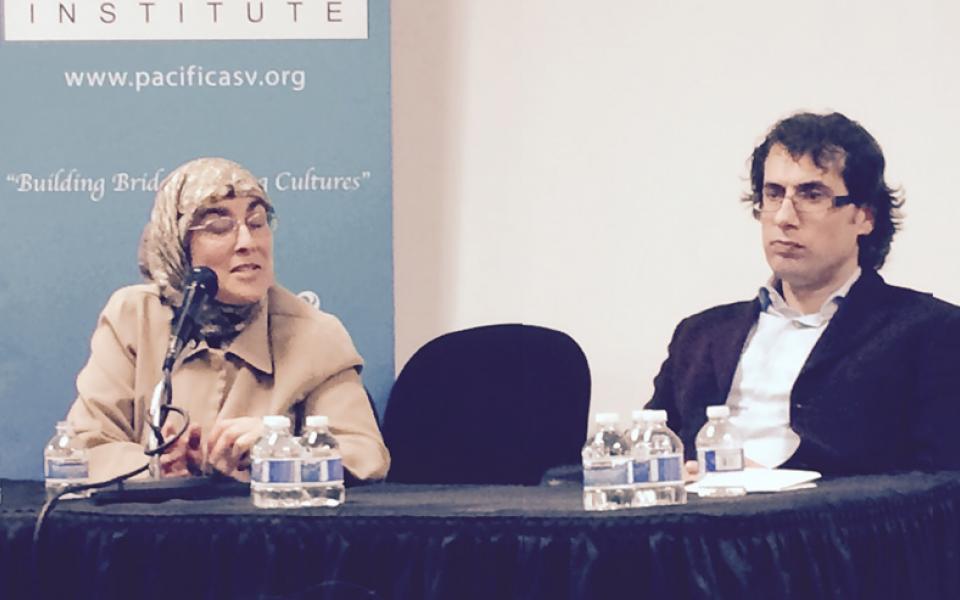
By D. Andrew Kille Silicon Valley Interreligious Council
Ameena Jandali has been helping people understand what Islam is for a long time and, after all these years, she is concerned that she still needed to explain how Islam is a religion of peace.
She is the co-founder and curriculum director of Islamic Networks Group, a group which has educated students, governmental agencies, religious congregations, hospital staff and more about Islam since 1993. Jandali was one of the panelists at “Muslim Voices Against Extremism,’ an event sponsored by the Pacifica Institute in Sunnyvale, an Affiliate Organization of SiVIC (Silicon Valley Interreligious Council), a Cooperating Circle of URI.
Joining Jandali was Dr. Ozgur Koca, a professor of Islamic studies at Bayan Claremont, part of the interfaith Claremont School of Theology in Southern California. Jandali described how extremism of any kind is contrary to Islam. The Prophet Muhammad instructed his followers to lead balanced lives, and opposed excessive prayers or fasting. The ummah - meaning the whole Islamic people — was known as “the middle nation,” in part because of its physical location between East and West, making it a crossroads for trade, learning, and cultural exchange. But it was also the “middle way”—a religious path that frowned on extremes.
While clearly condemning violence, Dr. Koca offered some understanding into the external and internal factors that might give rise to violence within the Muslim world. External factors include political grievances (both real and imagined), oppressive regimes in many Muslim countries, and ghettoization and demonization of Muslims in Europe and elsewhere. Internal factors can include religious illiteracy, a willingness to magnify marginal teachings in the tradition, and religious puritanism. Koca described how many radicals are young, new converts, self-taught (two young British men who set out for Syria recently first purchased Islam for Dummies, and The Koran for Dummies on Amazon.com), and relatively unobservant.
Noting how Christians respect St. Thomas Aquinas and Martin Luther as great teachers and theologians, he reminded the group that less-admirable condemnation of Jews and unbelievers also appear in their writings. What if someone seized on those portions and insisted they were central to Christianity? It would be severely distorted. Likewise, some groups take marginal writings from Islam and insist they are essential to the faith.
“This event will not make it to the headlines,” Koca said, highlighting the challenges that Muslims face when they do speak out against extremism. “But God does not judge us by the headlines, but by what we do here and now.”
The violent, the frightening, and the unusual may make the news, he continued, but the task before us all is to speak out again and again against violence done in the name of religion.
“We need to be deafeningly loud” in opposing violence, said Jandali, not to apologize for the actions of the few but to challenge those who would hijack faith for political agendas.
The program was part of an ongoing speaker series sponsored Pacifica Institute, a group founded by Turkish-Americans that seeks to offer perspectives on education, spirituality, democracy, social justice, interfaith/intercultural dialogue and community service.
